Search
Showing 10 of 1867 results for how to register international groups
-
2024 Tripartite Fund awardees announced
Education New Zealand Manapou ki Ao (ENZ) congratulates the recipients of the 2024 New Zealand China Tripartite Partnership Fund. The three recipients were announced by Prime Minister Rt Hon Christopher Luxon at the closing ceremony of the New Zealand-China High Level Education Forum held in Auckland on Friday 14 June.
The recipients are Professor Chris Bullen from the University of Auckland, Professor Joce Nuttall from the University of Canterbury and Professor Wanglin Ma from Lincoln University. The three recipients were selected from a total of 30 applications by an assessment panel which included representatives from ENZ along with representatives from the New Zealand Ministries of Business, Immigration and Employment, Education, and Foreign Affairs and Trade.
The New Zealand-China Tripartite Partnership Fund is an ENZ-sponsored initiative to encourage the development of strategic research relationships between New Zealand and China, as part of our wider goals to develop strong global connections and highlight the quality of New Zealand education and research.
The fund was established in 2005 when the New Zealand and China Ministries of Education agreed to formally support and promote tripartite relationships between one New Zealand and two Chinese universities, in which a New Zealand university became the ‘third brother’ to an existing ‘two brothers’ agreement.
University of Auckland – Professor Chris Bullen
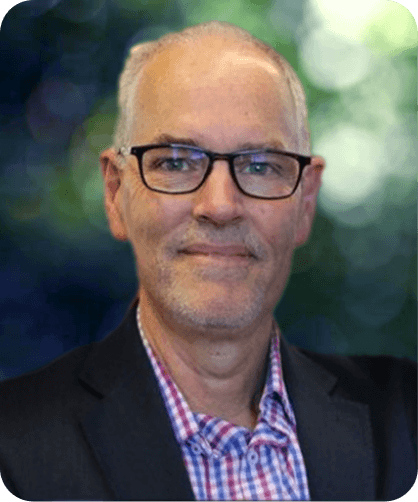
Credit: The National Institute for Health Innovation.
Professor Bullen’s proposal is a new Tripartite partnership in the sciences with Zhejiang University and Dali University. This project aims to combine the strengths of the University of Auckland, Zhejiang University, and Dali University to develop and implement a platform specifically designed for delivering comprehensive pulmonary rehabilitation services remotely. The primary objective of the research is to build and test for feasibility a pulmonary rehabilitation platform, a solution that will benefit both New Zealand and China and populations who suffer from global health challenges such as Chronic Obstructive Pulmonary Disease (COPD).
University of Canterbury – Professor Joce Nuttall
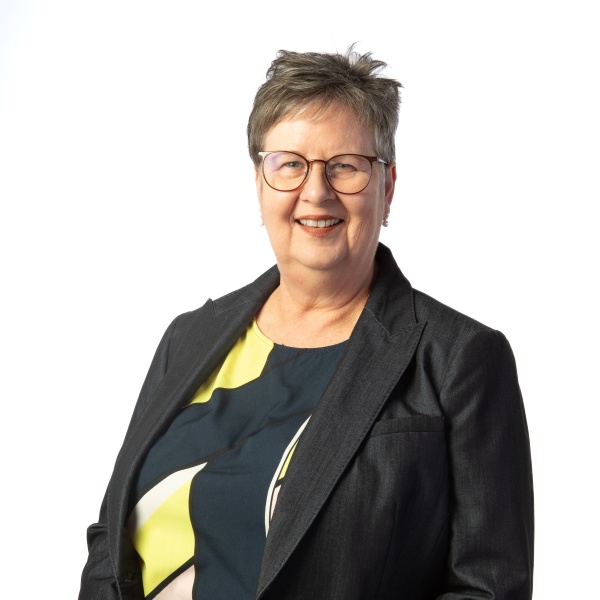
Photo credit: University of Canterbury.
Professor Joce Nuttall of the University of Canterbury was awarded $25,000 for her proposal titled ‘Digital transformation in early years education: Establishing a shared platform for collaboration.’
Professor Nuttall’s proposal builds on University of Canterbury’s (UC) partnership with Shanghai Normal University that have been in place since 2017, and with Qufu Normal University since February 2023. Her research project aims to develop stronger teaching and learning methods for digital literacy in early childhood.
Lincoln University – Professor Wanglin Ma
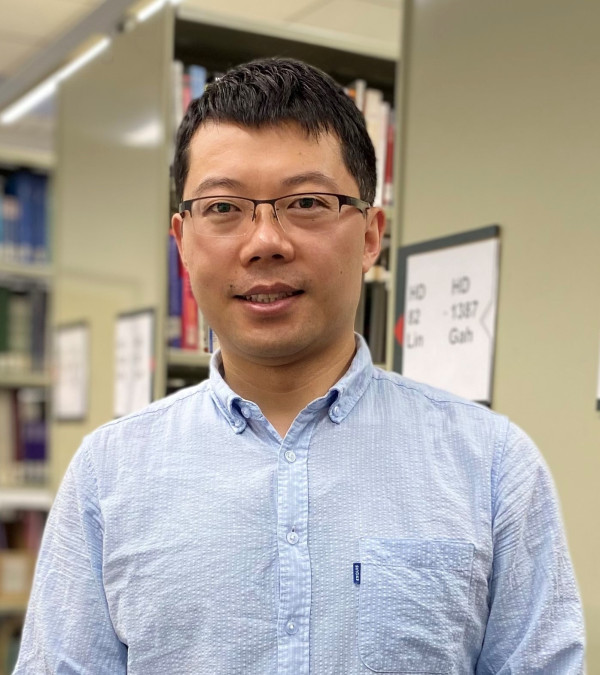
Photo credit: Lincoln University.
Lincoln University’s Professor Wanglin Ma will be awarded $30,000 for his project titled ‘Leveraging circular bio-economy principles for sustainable agricultural waste management: A New Zealand-China collaboration’.
Professor Ma’s proposal was for a new Tripartite relationship in the applied sciences with China Agricultural University and Southwest Forestry University. His project focuses on waste management practices and advocating for innovative use in creating sustainable solutions for reimagining agricultural waste as a vital resource. The aim of the project is to develop strategies and technologies for the conversion of agricultural waste into high-value products in New Zealand and China.
-
StudySpy becomes SwNZ.govt.nz data inventory provider
In August, Education New Zealand Manapou ki te Ao (ENZ) will be switching to StudySpy as its data inventory provider for the Study with New Zealand (SwNZ) website. This switch is required as the current data inventory provider has told us that it will no longer be providing this service.
Switching to StudySpy will bring several benefits including a more user-friendly admin portal and a more responsive support system as StudySpy is New Zealand based and in the same time zone. Importantly, there will be no change to the enquiry process.
This change will have an effect on those education providers who currently have a profile on the SwNZ website, such as provider, course and scholarship information. These providers have been notified of the upcoming changes and further information, including next steps and a user guide, will be sent in early August.
If any education providers have any questions about this transition, or if you are a provider with a SwNZ profile and have not yet received any information regarding this, please contact Global Marketing Automation and Database Specialist, Isla Ye – isla.ye@enz.govt.nz.
-
ENZ launches new tool to help students with visa application process
Developed as a resource for both students and education agents, the video guides students through the steps of applying for a visa to study in Aotearoa, New Zealand. The video, now available in English, Chinese, Korean, Japanese and Thai, offers students helpful tips to increase their chances of a successful visa application outcome.
As we near the October and March period when Immigration New Zealand (INZ) receives its highest volume of visa applications it is important that students not only apply early for their visa but also complete their application properly to ensure it is processed as quickly as possible. INZ recommends that students apply at least three months before their intended travel date to give them the best chance of having their application decided in time.
The visa videos are free to download from Brand Lab and can be used across the marketing channels of individual education providers. The English language version of the video is also publicly available on YouTube and on the Study with New Zealand website.
-
Viet Nam Market Insights: Opportunities and Challenges for New Zealand's PTEs and ELS Providers
On 29 August, Education New Zealand Manapou ki te Ao (ENZ) held an Insights Accelerator session for representatives from Private Training Establishments (PTEs) and English Language Schools (ELS) across New Zealand. ENZ’s Market Manager - Viet Nam, Van Banh, delivered a presentation that outlined Viet Nam’s current market trends, barriers to student recruitment, and essential tips for providers aiming to strengthen their presence in this dynamic country.
The session had 30 representatives from 20 PTEs attending, demonstrating how New Zealand education providers are recognising the opportunities for growth given the country’s expanding economy and growing middle class. As Van noted " Viet Nam offers significant growth opportunities, but success will require a tailored approach that addresses both the evolving demands of Vietnamese students and the competitive landscape."
The demand for English language skills is particularly high in business, technology, and education, as Vietnam continues its global integration. This makes New Zealand's high-quality ELS programmes attractive.
For PTEs, the country's growing economy requires a workforce with practical, vocational skills, which New Zealand’s providers are well-positioned to offer. Many PTEs and ELS institutions provide pathway programmes that help students transition into higher education or industries with globally recognised qualifications, Vietnamese students are attracted to New Zealand programmes that enhance employability both in Viet Nam and internationally.
Van added that despite these opportunities, there are some challenges.
“Tough competition from other study destinations and the changing preferences of Vietnamese students—away from traditional English and vocational courses—will require providers to adapt and innovate. The country's rapid development and young population present long-term growth potential, but strategic planning and market responsiveness will be key,” said Van.
The slides from the Accelerator Session can be found here. You can also watch a recording of the session here - https://youtu.be/KQE22JV1t2w
-
NZ-GRADS scholars come together at annual science meeting
The NZ-GRADS programme awards scholarships to students from developing countries who are passionate about researching topics related to greenhouse gas emissions from agriculture systems, primarily livestock. The scholarship programme is funded by MPI and managed by Education New Zealand Manapou ki te Ao (ENZ).
The seven scholars were supported to travel to Wellington by MPI, while ENZ organized the travel and scholar engagement for the day. This event not only allowed scholars the opportunity to hear cutting-edge research relevant to their own fields, but to also to connect with each other, and fellow scholars and researchers. The scholars are currently studying towards their PhDs across the motu at the University of Auckland, Massey University, the University of Waikato, the University of Otago and Lincoln University.
ENZ Director Scholarships Carla Rey Vesquez said getting the scholars together in-person enabled lively discussion between the scholars and attendees.
“I was delighted to witness the excitement and ideas emerging from the conversations. The NZ GRADS scholars are a vibrant group of people dedicated to creating a greener future both in New Zealand and back home.
“Attending in-person was critical in cementing their understandings of research in their own fields and the wider science community in New Zealand,” she added.
The event was very well received by scholars, with Kirill Bogdanov commenting “this was an excellent experience to be around people who support science and especially listen to the questions they asked - it is valuable to know what the investors expect from your research.”
“New Zealand is giving me a marvellous opportunity to perform high-quality research, communicate with interesting people, and be on my own adventure in a land far, far away,” he added.
-
Tony Gray appointed to ENZ Board
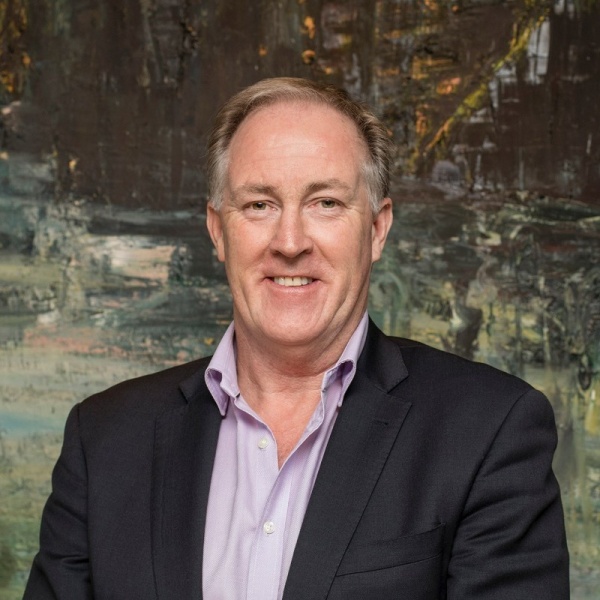
Gray will start his Board appointment on 1 November. He has vast experience in the education sector, in a career spanning 37 years both here and in the United Kingdom. Gray is currently Chief Executive of the Nelson Tasman Hospice Trust.
Gray’s focus was on vocational education after migrating to New Zealand in 2003. In his most recent role in the sector, Gray was Chief Executive at Ara Institute of Canterbury between 2017 and 2021, and Chief Executive at Nelson Marlborough Institute of Technology (NMIT) prior.
Under Tony’s leadership, NMIT became a leading educator for regional primary industries. He has a strong interest in growth and innovation, helping to establish INNOVATE – a regional entrepreneur activator that supports, nurtures and grows businesses in the region.
In this time at Ara, Tony led his organisation through the Reform of Vocational Education and continued his interest in supporting innovation – leading the establishment of Te Ohaka, a Centre for Growth and Innovation. Tony also grew Ara’s involvement in the Te Papa Hauora Health Precinct - a collaboration with Te Whatu Ora Waitaha, University of Canterbury, University of Otago and Ngāi Tahu.
In 2023, Tony was appointed a Member of the New Zealand Order of Merit for his services to education.
-
EOIs sought for 2025 PTE and ITP Roadshow in the Philippines
As part of Education New Zealand Manapou ki te Ao’s (ENZ) ongoing efforts to expand the Philippines market for Private Training Establishments (PTE) and Te Pūkenga (Business Divisions – ITP) sub-sectors, ENZ will be leading a roadshow from 1–10 May 2025. This roadshow will include an agent seminar and three student fairs with three days allocated to each location in Manila, Bacolod and Cebu.
The roadshow’s objectives are to increase awareness of New Zealand’s education offerings, particularly in the PTE and ITP sub-sectors, and to support the growth of inbound student mobility. Additionally, the roadshow seeks to strengthen existing relationships between agents and institutions.
The agent seminar will bring together PTE and ITP representatives and education agents while the student fairs will offer prospective students and their families an opportunity to meet with sector representatives and gather detailed information about studying in New Zealand.
In addition to the fairs and seminar, the programme will feature a school roadshow and a counsellors' dinner. The school roadshow will provide information sessions for secondary school students while the counsellors’ dinner will be an opportunity for participants to meet with school counsellors.
For further details, please refer to this Expression of Interest document. Interested participants should confirm their interest with their Business Development Manager by 5pm (NZT), 29 November 2024.
For any enquiries, please contact:
-
ENZ Business Development Manager for PTEs, Jane Yang, jane.yang@enz.govt.nz
-
ENZ Business Develpoment Manager for ITPs, Richard Kyle, richard.kyle@enz.govt.nz
-
-
Insights for PTEs & ELS on how to better attract students from China
In June, participants from Private Training Establishments (PTEs) and English Language Schools (ELS) in New Zealand were invited by Education New Zealand Manapou ki te Ao (ENZ) and the North Asia Centre of Asia-Pacific Excellence (CAPE) to attend a workshop looking at opportunities in China. The workshop was called “"Navigating the new dynamics of Chinese overseas students seeking to study with PTEs and English Language Schools."
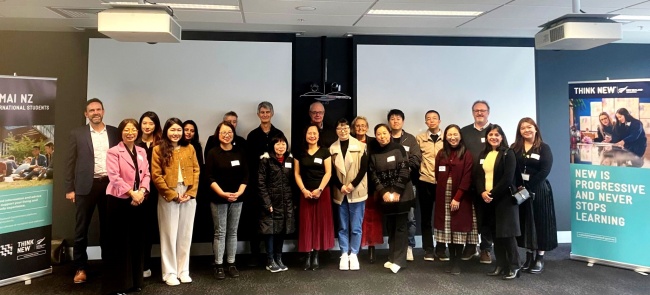
Participants from PTEs and ELS at the June workshop co-hosted by ENZ and North Asia CAPE.
Following the conclusion of the workshop, a report was commissioned by North Asia CAPE and facilitated by ENZ, with Shanghai-based market research company China Skinny conducting an in-depth exploration of key topics discussed during the event.
The report, ‘Insights for New Zealand’s English Language Schools and PTEs to better attract Chinese students’, was launched at an event at ENZ’s Auckland office in September with participants from PTEs and ELS. Mark Tanner, founder and managing director of China Skinny presented the report putting a focus on:
-
Building awareness of your institutions with your Chinese target audience.
-
Considerations for PTEs and English language schools.
-
Examples of how other institutions are marketing to their target audiences in China, with an accompanying checklist.
Richard Kensington, Principal of Academic Relations at UP Education, attended both the workshop and the report launch.
He said, “These initiatives by ENZ provided useful insights into Chinese students considering overseas vocational education, including some we were not previously aware of.
"It also reminded us of the significant potential in China’s vocational education market. We need to explore new, innovative ways to recruit students, rather than just relying on traditional methods,” continued Richard.
The report is based on insights drawn from a survey of 700 vocational and language school considerers and interviews with eight education agents in China. A copy of the full report can be found here - Insights for NZ's ELS & PTEs to better attract Chinese students.pdf
-
-
New brand identity of the Manaaki New Zealand Scholarship Programme launching next week
Education providers and suppliers who are part of the programme will be able to start using the new brand’s design assets from The ENZ BrandLab from 23 October.
The Manaaki New Zealand Scholarship website will also prominently showcase the refreshed brand from next week.

The new Manaaki logo consists of three parts. The tohu is on the left, the Manaaki wordmark is placed in the middle, with the Aotearoa New Zealand fernmark on the right-hand side.
New Zealand Ministry of Foreign Affairs and Trade - Manatū Aorere (MFAT) Scholarships Unit Manager, Alexandra Grace, said it was important for the new brand identity to reflect the transformational nature of Manaaki scholarships to build people’s skills and support them to contribute positively to their communities and countries.
“The new brand is an exciting step forward to unify the Manaaki New Zealand Scholarship Programme’s visual identity to appeal to prospective scholars who are most aligned with our Programme’s values,” Alexandra said.

He parirau is one of the key patterns of the new brand. It is inspired by the takarangi (spiral) and parirau (feathers).
The brand identity development and working group involved kaimahi Māori from MFAT, Education New Zealand Manapou ki te Ao and Indigenous Design Innovation Aotearoa (IDIA) who gifted a specially crafted whakatauākī* for the Manaaki New Zealand Scholarship Programme.
The whakatauākī ‘He Parirau Toro Ao’ translates to ‘stretch your wings to the world’.
ENZ’s Senior Advisor, Rautaki Māori, Craig Rofe, said the whakatauākī is a profound taonga and gift to the Manaaki New Zealand Scholarship Programme.
“It beautifully anchors the programme in āhua Māori (Māori ways of being).”
“We are also pleased with how the whole process of creating the new brand has been steeped in āhua Māori. The way everyone involved in the project used whakawhanaungatanga – the specific act of getting to know one another before we started our work – and wānanga, coming together to meet, discuss and deliberate, every step of the way, made all the difference,” Craig said.


Digital banners showing the application of the brand and whakatauākī.
The new brand was developed following research and interviews with 29 scholars and alumni, and a survey covering 627 people.
The research surfaced three compelling principles for the Manaaki New Zealand Scholarship Programme – manaakitanga, empowering people, communities and countries, and fostering enduring connections.
ENZ’s Manaaki Scholarships Manager, Nancy Linton, said the concept of manaakitanga is integral to the Manaaki New Zealand Scholarships Programme – not only by name, but also in the way that scholars are supported during their entire journey, from application and study to their return home.
“The manaaki we show our visitors by embracing them like part of our ‘whānau’ or family is visible in the way our educational providers extend that support to Manaaki scholars and alumni, who really value it as part of their study experience.
“I am pleased with the way we have incorporated this core element of the Programme, among others, into the new brand identity,” Nancy said.
A brand transition period is in place through 28 February 2025, to allow providers enough time to switch to new brand assets.
Visit The ENZ BrandLab to access new design assets for the Manaaki New Zealand Scholarship Programme after 24 October.
* Whakatauākī are proverbs where the person who said it first is known, as opposed to whakataukī, which are proverbs whose origin cannot be traced to a person.
-
NZ EdTech breaks into Middle East market with ‘Play Code Learn’ teaching solution
ByteEd is a New Zealand EdTech company with a mission to empower future generations to become creators of technology rather than just users. The company started out in 2018 by teaching industry-standard programming to high school and university students to create virtual reality worlds. However, a need to start reaching a younger audience was identified due to a lack of foundational concepts.
This led Founder and CE, Peter Dong and his team, to develop a comprehensive solution for students in their early years, using ‘Play Code Learn’ hands on kits combined with augmented reality and artificial intelligence to address this gap.
It is this solution that has been adopted as a core resource by Higher Colleges of Technology (HCT) in the United Arab Emirates for its new Computational Thinking course. All Emirati graduates from their six colleges will learn computational thinking and then using the Play Code Learn resource will teach this in schools where they will become teachers.
Dr Robert Miles and Haya Al Nuaimi undertaking training on the Play Code Learn kits at HCT Ras Al Khaimah
Peter says that getting to this point has been the culmination of several years of hard work and relationship building, with patience and persistence being key to their success.
“We went into this process knowing that it would take time. We started with a real understanding of our customers’ needs and in particular those of HCT. HCT is a large organisation and we needed to build relationships with multiple key decision makers.
“We are so excited to have made this breakthrough into the UAE and hope it paves the way for more New Zealand EdTechs to do the same;” said Peter.
“As more educators at HCT in the UAE use our solution and collaborate with ByTeEd, then we’ll be building New Zealand’s reputation for our country’s capability in developing innovative and valuable EdTech solutions,” he added.
A student using augmented reality to program while the physical learning kit can be seen in the background.
The opportunity to work with HCT all came about from an introduction that was facilitated by Education New Zealand Manapou ki te Ao (ENZ) at the New Zealand Pavilion at the Dubai World Expo in early 2022. Several New Zealand EdTech companies were invited to be part alongside other New Zealand education providers.
Dr Angela Fitzgerald, Executive Dean – Faculty of Education at HCT commented that the work that her Faculty was doing with ByteEd is powerful.
“Their approach empowers teacher educators through lived experiences of computational thinking to prepare future teachers in equally dynamic ways to equip young children with these very skills and knowledge. This will be necessary as they navigate their future worlds,” said Dr Fitzgerald.
Lecturer Jennifer Filinuk and Senior Lecturer Savita Parashar are using the hands-on learning tools to learn computational thinking before combining it with augmented reality.
When asked what advice ByteEd would give to a fellow EdTech looking to expand their business overseas, and specifically into the Gulf Cooperation Council countries, Peter had some nuggets of advice.
He said that taking the first step to explore the market and gauge interest from target customers is key to gaining that initial understanding of the potential, as is gaining a clear understanding of the problem that you’re aiming to solve for this market.
“Show that you’re not just another visitor and be prepared to make multiple visits and build relationships.
“There are many opportunities in the Gulf region for New Zealand EdTech companies, with more funding available here due to a strong focus on education. The region is also one of few where the younger population is growing,” said Peter.
“There is also significant competition in this region however, so make sure to research potential competitors and consider how to position your company and product effectively”, he concluded.
For more information
ENZ, alongside EdTechNZ, recently hosted a Middle East EdTEch market deep dive with a presentation delivered by Nick Sheppard, Trade and Commercial Advisor from New Zealand Trade and Enterprise based in Dubai. Joining him in the session were the Founders of New Zealand EdTech’s ByteEd, Komodo Wellbeing and EDconnect. You can watch a recording of the presentation here with the slides available here.
If you have further questions about the support that ENZ can provide New Zealand EdTechs overseas, please contact ENZ’s Business Development Manager, Alana Pellow – alana.pellow@enz.govt.nz.

